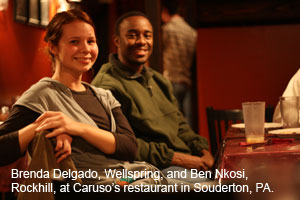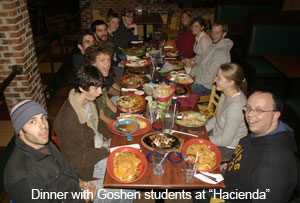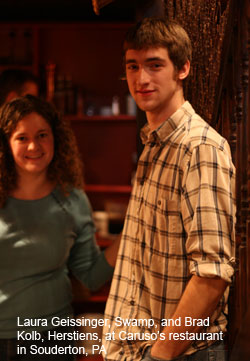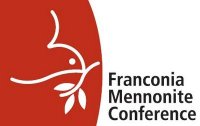This week on mosaicmennonites.org:
Read the latest Growing Leaders articles online:
- Why the incarnation principle still applies: Taking relationships seriously means you need to show up – David Landis
- Bridging the gap between tradition and innovation: Toward a relevant body of Christ – Jessica Walter
- Ministering with, to, and as a young adult: Honest questions of nurture, angst, and hope – Stephen Kriss
- What’s Franconia Conference doing on Facebook?
- Perspective on leading and inspiring young adults: An interview with Aldo Siahaan
- What are these young leaders telling us? Signs of hope and warning – James M. Lapp
- Book review: Thank you for asking, Growth events calendar, Toolbox of relevant reading
View video interviews from young leaders in Franconia Conference
News Stories:
- MAMA Project Computer training boosts students’ prospects
- Franconia Mennonite Church celebrates 15 year partnership with Iglesia Maranatha
Congregations and Pastors Address Pornography Together
Plan to attend the seminar, Thursday evening, March 29, from 7 – 9 p.m. and Friday morning, March 30, from 9 a.m. to 12 p.m. on the issue of pornography. The Seminar will be held at the Souderton Mennonite Church Fellowship Hall. The Thursday evening session is open to both lay leaders and pastors for teaching on the issue by Brenda Martin Hurst. The Friday morning session is especially for pastors, chaplains, and other ministerial staff persons, with credentialed leaders expected at both sessions. Brochures will be distributed soon with more information and plans for registration. Or call 215-723-5513, ext. 110 to indicate you will be attending. Pastors, be sure to invite key lay leaders to come with you to the Thursday evening session.
Bible Survey and Anabaptist Hermeneutics
Who might you encourage to attend the course with Marion Bontrager (Hesston College) on Bible Survey and Anabaptist Hermeneutics? The course will be held at Conestoga Mennonite Church, Morgantown, PA, April 13-14, May 11-12, and June 8-9. The course can be taken for three hours undergraduate credit ($945) or audit ($150). To register, call 866-EMU-LANC or email Julie.siegfried@emu.edu. This is a basic Gateway Course that all new credentialed leaders are expected to have taken in college or seminary.



 David Landis,
David Landis,  Although it might seem obvious, we clearly discovered that the very act of going and listening is the most practical starting point for understanding each other. In a world where those close to us are often separated by vast geographic distance, it takes a lot of energy, time and financial investment to make these journeys. Yet these precious resources of our culture are what we sacrifice because we care. An incarnate sacrifice indicates that we are committed to actively pursuing relational understanding.
Although it might seem obvious, we clearly discovered that the very act of going and listening is the most practical starting point for understanding each other. In a world where those close to us are often separated by vast geographic distance, it takes a lot of energy, time and financial investment to make these journeys. Yet these precious resources of our culture are what we sacrifice because we care. An incarnate sacrifice indicates that we are committed to actively pursuing relational understanding. Much of the pain that estranges us from our church community is due to broken relationships. We grow up in a tightly connected group seeking to explore what it means to personally follow Jesus with our daily decisions. It’s a difficult process that often separates us from each other. For the church community to holistically engage this learning process, we need to be able to re-imagine how to move toward each other.
Much of the pain that estranges us from our church community is due to broken relationships. We grow up in a tightly connected group seeking to explore what it means to personally follow Jesus with our daily decisions. It’s a difficult process that often separates us from each other. For the church community to holistically engage this learning process, we need to be able to re-imagine how to move toward each other.
 Recently, the Franconia Conference Leadership Cultivation team created a networking group on
Recently, the Franconia Conference Leadership Cultivation team created a networking group on 
